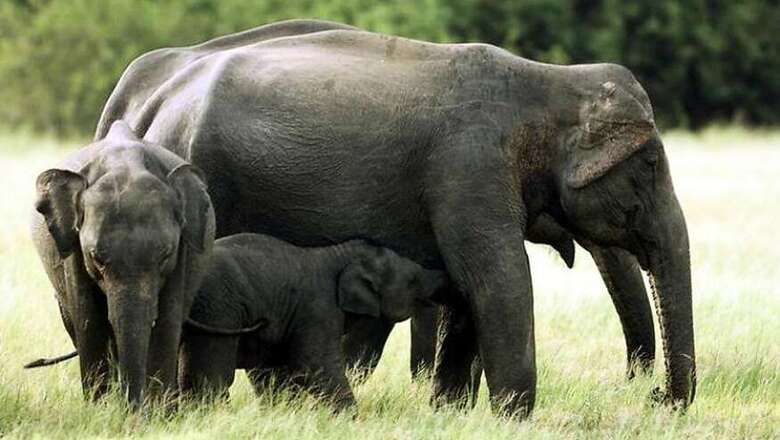
views
Dhaka: Heat-induced heart failure was the cause of death of the Indian wild elephant that was swept into Bangladesh by raging flood waters, doctors said on Wednesday, after an autopsy.
Doctors, who conducted the autopsy of 'Bangabahadur', meaning Hero of Bengal, said the four-tonne elephant died of heat-induced heart failure around 7am on Tuesday at Koyra village in northern Jamalpur district, about 200 km from the capital Dhaka.
The Sharishabarhi Upazila chief executive had formed a three-member committee, led by veterinary surgeon Mostafizur Rahman of Bangabandhu Safari Park, to conduct the elephant's autopsy.
"Bangabahadur died from heart failure triggered by insufferable heat," Rahman was quoted as saying by bdnews24. The animal was laid to rest at Koyra in the evening. Tapan Kumar Dey, a former forest conservator who led the rescue attempts, said, "We tried our best to rescue Bangabahadur and keep the elephant alive. Its death has also pained us".
Bangabahadur was separated from its herd on June 27 in Assam — where monsoon floods have made life difficult — and got washed away in the streams of mighty Brahmaputra to downstream Bangladesh.
In Bangladesh, after it was thought to have travelled for nearly 1,700 kilometres, Bangabahadur was rescued on August 11 by a forest team following six weeks of frantic efforts. On its way from India, it was forced to stay in marshes as the highlands were occupied by flood-hit people who were unwilling to let the frightened animal share their shelters.
The elephant entered Bangladesh through Roumari frontiers of northwestern Kurigram and then travelled miles to Jamalpur. It appeared agitated after being tranquilized more than once and moved indiscriminately for nearly an hour before it fell into a ditch unconscious during rescue efforts.
Forest officials and villagers dragged him off the ditch. It died as a process was underway to shift it to the Bangabandhu Safari Park from the remote village. Officials had planned to bring in two trained elephants to support the transportation.
Witnesses and people in the neighbourhood suspected that excessive tranquilizing might have partly led to its death. They alleged Bangabahadur was provided less than what it deserved to eat as officials feared with regained strength, it could break the shackles and pose threat to the neighbourhood.
Without proper food it gradually lost its strength. Earlier, an expert team from India led by a retired chief forest conservator on July 4 joined the Bangladeshi team in rescuing the elephant but left the scene three days later.



















Comments
0 comment